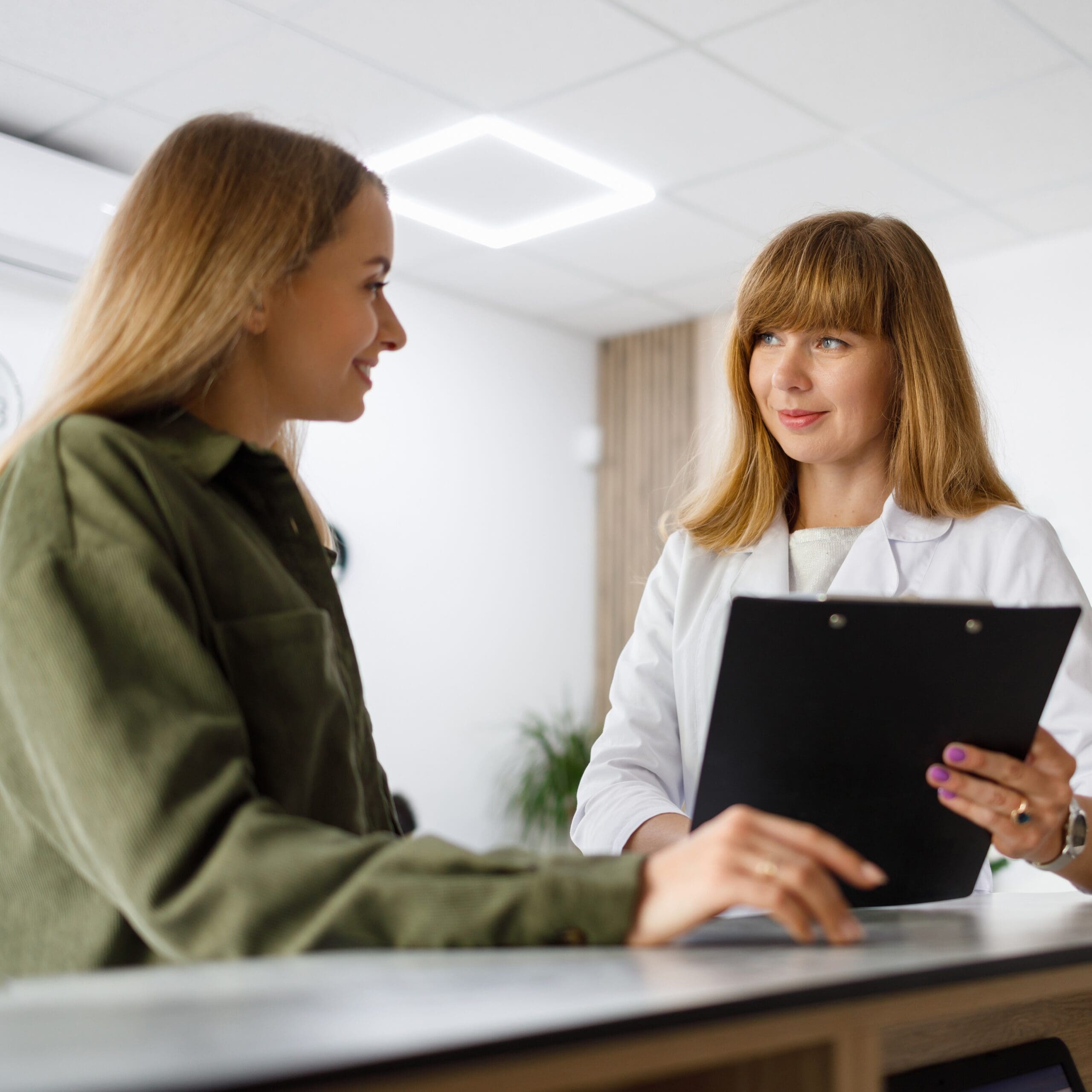Free STI Testing and Treatment in KY
If you’re sexually active, you have likely been exposed to an STI. At Care Net Pregnancy Services of Northern Kentucky, we provide free, confidential STI testing and treatment services in Kentucky. No insurance required and no judgment—just compassionate care when you need it most.
Why STI Testing Matters for Your Health
Sexual activity puts you at risk not only for unplanned pregnancy, but also for sexually transmitted infections (STIs). Regular screenings help detect infections early when they’re most treatable.
Many STIs are completely curable when caught early. Even those that aren’t curable can be managed with proper treatment. The sooner you know your status, the sooner you can protect your health and your future.
Taking charge of your sexual health isn’t embarrassing—it’s responsible.


STI Symptoms
STI symptoms may vary based on the type of disease you have. Generally, you and/or your partner may notice[1]:
- Swelling or itching near the genitals
- Bumps, sores, or warts on or near the genitals, anus, or mouth
- Foul-smelling vaginal discharge that causes irritation or is a different amount or color than normal
- Discharge from the penis
- Vaginal bleeding that is not your period
- Pain during urination or frequent urination
- Pain during sex
How Often Should I Get Tested for STIs?
Healthcare experts recommend regular STI testing for anyone who is sexually active. The Centers for Disease Control and Prevention (CDC) suggests[3]:
- Annual testing for sexually active women under 25
- Annual testing for sexually active women over 25 with new or multiple partners
- Early testing for pregnant women (for syphilis, HIV, hepatitis B, and hepatitis C)


Why You Need to Get Tested for STIs Before Abortion
If you’re facing an unplanned pregnancy and considering abortion, you need to get tested for STIs first. Here’s why:
- Prevent complications: Untreated STIs can cause serious complications during abortions.[4]
- Protect future fertility: Some STIs, if left untreated, can lead to pelvic inflammatory disease (PID) and eventually, infertility.[5]
- Ensure proper treatment: Knowing your STI status allows healthcare providers to give you the most appropriate care.
Schedule Your Free STI Testing and Treatment Appointment Today
Think you might have an STI? Care Net Pregnancy Services of Northern Kentucky offers free testing and treatment for:
- Gonorrhea
- Trichomoniasis
- Chlamydia
We also provide referrals for other infections. Give us a call at (859) 282-9878 or schedule your appointment online today.

Please be aware that Care Net Pregnancy Services of Northern Kentucky does not provide or refer for abortion services.
Sources
- Cleveland Clinic. (2023, February 3). Sexually Transmitted Infections. https://my.clevelandclinic.org/health/diseases/9138-sexually-transmitted-diseases–infections-stds–stis
- Mayo Clinic. (2022, May 5). Sexually Transmitted Disease (STD) Symptoms. https://www.mayoclinic.org/diseases-conditions/sexually-transmitted-diseases-stds/in-depth/std-symptoms/art-20047081 SMSNA
- Centers for Disease Control and Prevention. (2025, January 31). Getting Tested for STIs. https://www.cdc.gov/sti/testing/index.html
- Carlsson, I., Breding, K., & Larsson, P.-G. (2018, September 25). Complications related to induced abortion: a combined retrospective and longitudinal follow-up study. U.S. National Library of Medicine. https://www.ncbi.nlm.nih.gov/pmc/articles/PMC6156848/
- Mayo Clinic. (2022, April 30). Pelvic inflammatory disease (PID). https://www.mayoclinic.org/diseases-conditions/pelvic-inflammatory-disease/symptoms-causes/syc-20352594
